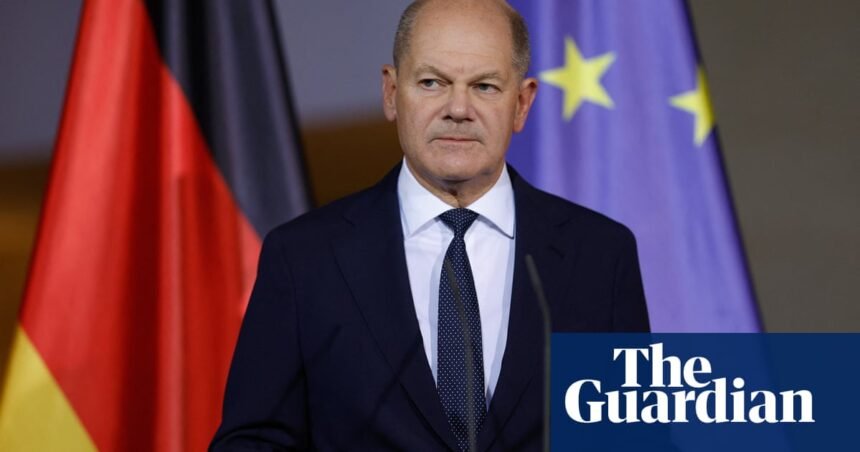Chancellor Olaf Scholz unexpectedly fired his finance minister, throwing Europe’s largest economy into political chaos and causing the German government to collapse.
Christian Lindner was expelled from the tripartite alliance at a meeting of top government members on Wednesday night, after months of bitter infighting that had made the government increasingly unpopular.
Government insiders say Donald Trump’s electoral victory will focus attention on Berlin and force leaders of the Social Democrats, Greens and FDP to recognize the need for unity. But discord and rancor in Berlin appear to show no sign of dying down.
Hours after Lindner was sacked, the FDP pulled the remaining ministers out of the cabinet, marking the end of the troubled and unpopular three-way alliance.
In a televised address to the nation, Scholz said he would seek a confidence vote in January that would pave the way for snap elections in March.
Scholz said he had given Lindner a plan to lower energy costs, increase investment and maintain support for Ukraine.
But Scholz said Lindner showed “reluctance” to accept it.
“This is a serious situation,” Scholz added. “War breaks out in Europe and tensions rise in the Middle East. Meanwhile, our economy grinds to a halt.
“We need to invest more in defense and the Bundeswehr, especially now, after the results of the US election,” he said.
Scholz made no secret of his frustration, accusing Lindner of being selfish, refusing to compromise and using “narrow party political tactics” in a time of increasing insecurity.
The German chancellor apologized to the German people, saying he “had hoped you would not have to take this difficult decision, especially at a time of increasing uncertainty,” a direct reference to the U.S. presidential election.
Lindner, 45, is leader of the pro-business Free Democratic Party, which issued a controversial 18-page ultimatum on Friday calling on the government to fundamentally rewrite next year’s budget plans.
With tough budget negotiations looming, he has repeatedly warned of an “autumn of decision-making” ahead.
Newsletter Promotion Post
His sacking could lead to an early election in March, six months earlier than originally planned. Scholz announced his intention to hold a vote of confidence in the Bundestag in mid-January and suggested that – depending on the results – elections could be held in March.
After Scholz’s announcement, Lindner was visibly angry, accusing the chancellor of having “long failed to recognize that our country needs a new economic awakening” and of “ignoring the economic concerns of our citizens.”
His party currently stands at about 4% in opinion polls, below the threshold needed to win seats in parliament, but he has made no secret of his plans to win seats in the new government. “We remain ready to take responsibility for this country and we will try to take on the same responsibility in another administration next year,” he said.
The FDP has traditionally been the government partner of the conservative CDU/CSU alliance, which ranks highly in opinion polls compared with the Alliance Party.
CSU leader Markus Söder called for new elections as soon as Wednesday evening in January, saying there could be no “tactical delays” and declaring a “traffic light” [coalition] It’s history,” referring to the colors of the three parties in government.
Green Party Economy Minister Robert Habeck tried to put a positive spin on Lindner’s ouster, urging those who were “scared and worried” about the outcome of the US election to see it as “the beginning of a new impulse”.
Prominent economist Clemens Forster of the Ifo Institute was cautious about the news, saying that at a time when Germany was “economically in trouble”, “there is no doubt that a new government is needed that can act quickly” ”.
The fallout is expected to plunge Germany into prolonged uncertainty at a time when European leaders have been trying to come together to deal with challenges including a possible trade war with the United States.
Germany, the second-largest supporter of Ukraine after the United States, also faces concerns that it will take a larger share of the war if Trump follows through on his threat to reduce support for Kiev.
A Forsa poll published on Wednesday showed that 82% of Germans said they did not trust the government to solve Germany’s economic crisis before federal elections scheduled for next September.

